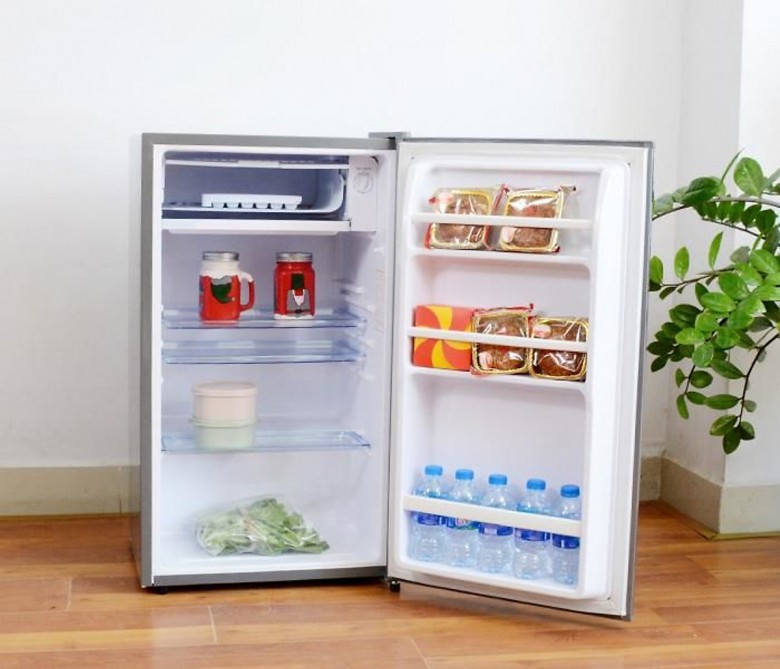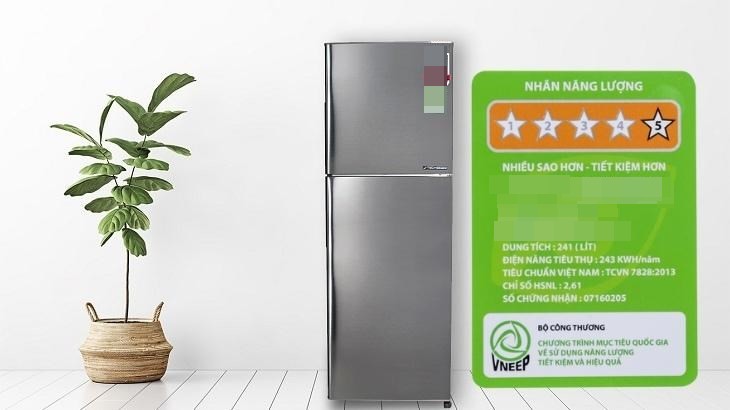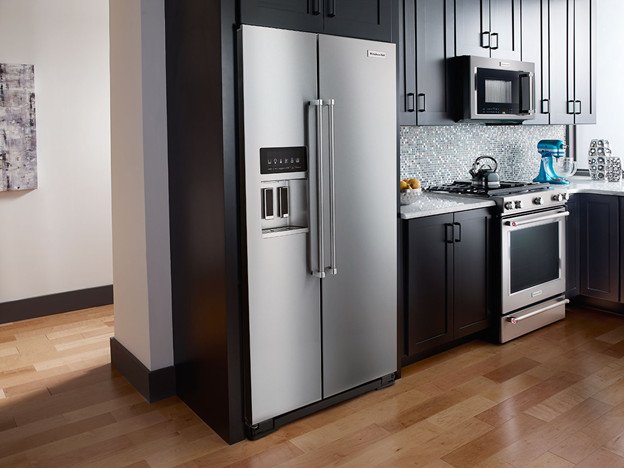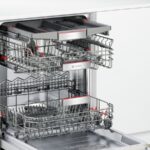With so many different styles and brands of refrigerators on the market, it can be overwhelming to know which one to choose. Having replaced my refrigerator twice, I’ve learned that there are “5 don’ts” to keep in mind when making a purchase.
1. Don’t buy a refrigerator that’s too small

When it was just my spouse and me, we often ate out and only cooked at home in the evenings. So, we bought a small refrigerator. But soon, I realized it was a mistake. The interior space was tiny, accommodating only a small amount of food, and the freezer was so small that it could barely fit a piece of meat, let alone ice or anything else.
Especially when we wanted to bring a lot of food and drinks from our hometown, the small refrigerator just couldn’t cut it. On occasions like family gatherings or holidays, we felt the strain of its limited capacity.
That’s why I recommend choosing a refrigerator with a larger capacity, considering the number of family members. For those living alone, students, or families with 1-2 members who don’t need extensive food storage, a refrigerator with a capacity of less than 150 liters is ideal.
For families with 2-3 members, opt for a 150-300 liter refrigerator. A 300-400 liter capacity will suit families with 3-4 members, while a 400-550 liter refrigerator is perfect for a family of 5. If you have 5-7 family members, go for a refrigerator with a capacity of over 550 liters.
2. Don’t buy a direct cooling refrigerator

There are two types of refrigerators: direct cooling and indirect cooling. While direct cooling refrigerators are inexpensive, cool quickly, and have easily replaceable parts, they tend to form thick layers of frost over time. This reduces storage space and affects your ability to store a variety of foods.
To maintain adequate storage space, you’ll need to clean the refrigerator regularly, as the frost can build up quickly and impact both functionality and bacterial growth. Additionally, food stored in direct cooling refrigerators tends to lose nutrients and doesn’t stay as fresh.
It’s best to opt for an indirect cooling refrigerator, which uses a hidden cooling system and a fan to circulate cold air evenly. This prevents frost buildup, ensuring better food preservation and maintaining the nutritional value of your food.
3. Avoid energy-guzzling refrigerators

When buying a refrigerator, don’t just consider its capacity. While a large capacity is important, energy efficiency is crucial. Look for the energy efficiency label, which displays a rating from 1 to 5 stars. The more stars, the more energy-efficient the refrigerator is. For similar models with the same capacity and functions, the 5-star option is the most optimal, and fewer stars mean higher electricity costs.
4. Steer clear of high-tech refrigerators
Today’s market favors high-end smart refrigerators with built-in “tablets.” While they may look sleek and offer flashy features, these functions often come at a higher price and may not be as practical as they seem. The core function of a refrigerator is to preserve freshness and freeze food, so focus on energy efficiency and effective cooling and freezing capabilities.
Spending extra on features you may never use isn’t a wise choice. Instead, look for a refrigerator that excels at its primary functions and offers good value for money.
5. Avoid side-by-side refrigerators

Traditional refrigerators used to have top and bottom doors, separating the freezer and cooling compartments. Now, there are various door styles: side-by-side, French doors, and Japanese-style doors. However, I don’t recommend side-by-side refrigerators. Every time you open the door, all the contents are exposed, affecting food preservation and increasing electricity consumption.



































